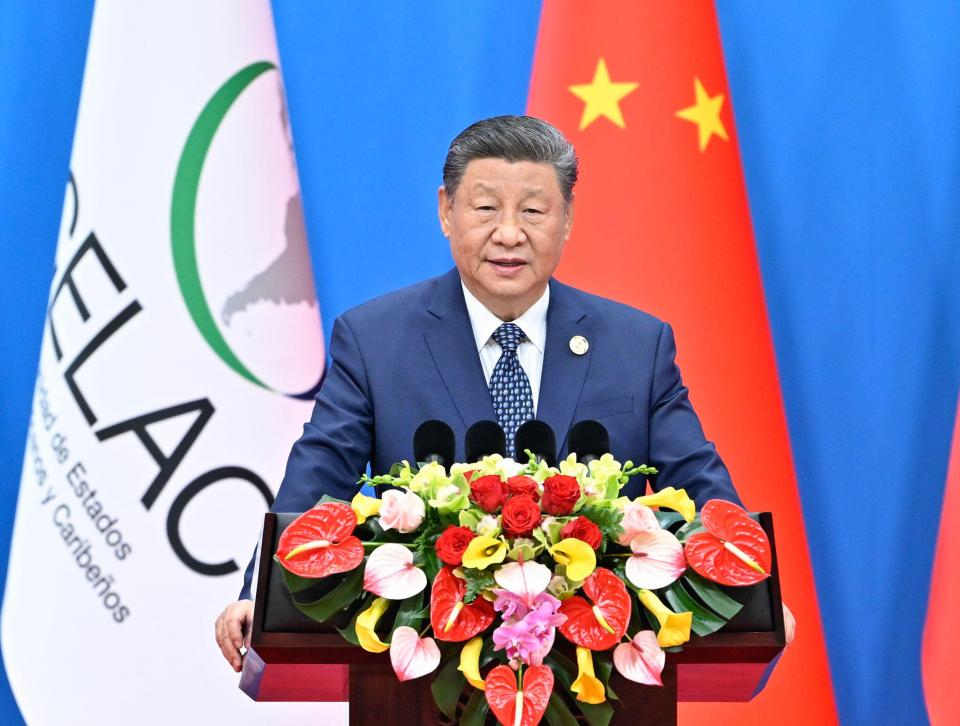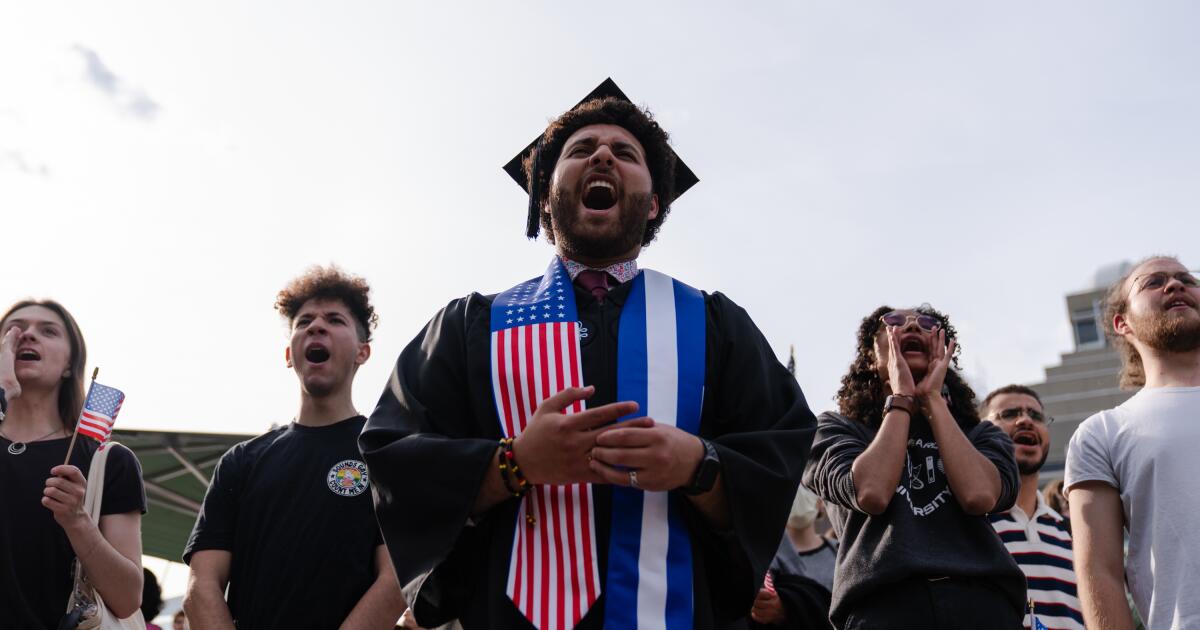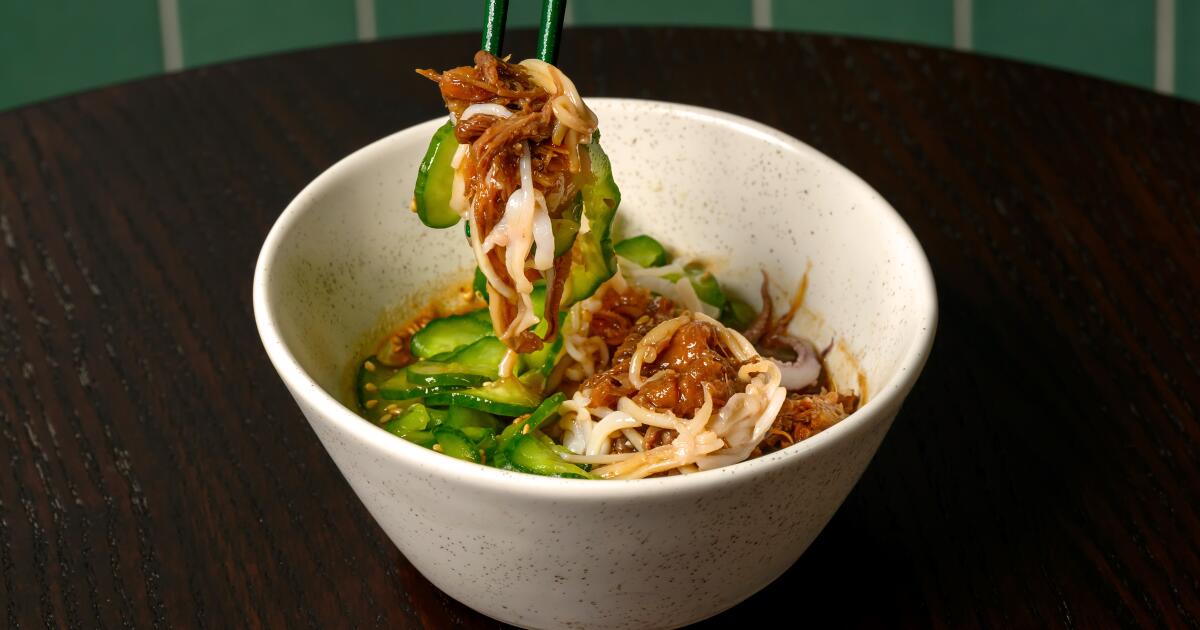American universities have long feared that the Chinese government will restrict its country’s students from attending institutions that cross Beijing’s sensitive political lines.
Universities still fear that consequence today, but the most immediate threat is no longer posed by the Chinese government. Now, as the latest punishment meted out to the Trump administration’s preeminent academic scapegoat shows, it’s our own government posing the threat.
In a May 22 letter, Homeland Security Secretary Kristi Noem announced she revoked Harvard University’s Student and Exchange Visitor Program certification, meaning the university’s thousands of international students must transfer immediately or lose their legal status. Harvard can no longer enroll future international students either.
Noem cited Harvard’s failure to hand over international student disciplinary records in response to a prior letter and, disturbingly, the Trump administration’s desire to “root out the evils of anti-Americanism” on campus. Among the most alarming demands in this latest missive was that Harvard supply all video of “any protest activity” by any international student within the last five years.
Harvard immediately sued Noem and her department and other agencies, rightfully calling the revocation “a blatant violation of the First Amendment,” and within hours a judge issued a temporary restraining order against the revocation.
“Let this serve as a warning to all universities and academic institutions across the country,” Noem wrote on X about the punishment. And on Tuesday, the administration halted interviews for all new student visas.
This is not how a free country treats its schools — or the international visitors who attend them.
Noem’s warning will, no doubt, be heard loud and clear. That’s because universities — which depend on international students’ tuition dollars — have already had reason to worry that they will lose access to international students for displeasing censorial government officials.
In 2010, Beijing revoked recognition of the University of Calgary’s accreditation in China, meaning Chinese students at the Canadian school suddenly risked paying for a degree worth little at home. The reason? The university’s granting of an honorary degree to the Dalai Lama the year before. “We have offended our Chinese partners by the very fact of bringing in the Dalai Lama, and we have work to resolve that issue,” a spokesperson said.
Beijing restored recognition over a year later, but many Chinese students had already left. Damage done.
Similarly, when UC San Diego hosted the Dalai Lama as commencement speaker in 2017, punishment followed. The China Scholarship Council suspended funding for academics intending to study at UCSD, and an article in the state media outlet Global Times recommended that Chinese authorities “not recognize diplomas or degree certificates issued by the university.”
This kind of direct punishment doesn’t happen very frequently. But the threat always exists, and it creates fear that administrators take into account when deciding how their universities operate.
American universities now must fear that they will suffer this penalty too, but at an even greater scale: revocation of access not just to students from China, but all international students. That’s a huge potential loss. At Harvard, for example, international students make up a whopping 27% of total enrollment.
Whether they publicly acknowledge it or not, university leaders probably are considering whether they need to adjust their behavior to avoid seeing international student tuition funds dry up.
Will our colleges and universities increase censorship and surveillance of international students? Avoid inviting commencement speakers disfavored by the Trump administration? Pressure academic departments against hiring any professors whose social media comments or areas of research will catch the eye of mercurial government officials?
And, equally disturbing, will they be willing to admit that they are now making these calculations at all? Unlike direct punishments by the Trump administration or Beijing, this chilling effect is likely to be largely invisible.
Harvard might be able to survive without international students’ tuition. But a vast number of other universities could not. The nation as a whole would feel their loss too: In the 2023-24 academic year, international students contributed a record-breaking $43.8 billion to the American economy.
And these students — who have uprooted their lives for the promise of what American education offers — are the ones who will suffer the most, as they experience weeks or months of panic and upheaval while being used as pawns in this campaign to punish higher ed.
If the Trump administration is seeking to root out “anti-Americanism,” it can begin by surveying its own behavior in recent months. Freedom of expression is one of our country’s most cherished values. Censorship, surveillance and punishment of government critics do not belong here.
Sarah McLaughlin is senior scholar on global expression at the Foundation for Individual Rights and Expression and author of the forthcoming book “Authoritarians in the Academy: How the Internationalization of Higher Education and Borderless Censorship Threaten Free Speech.”



